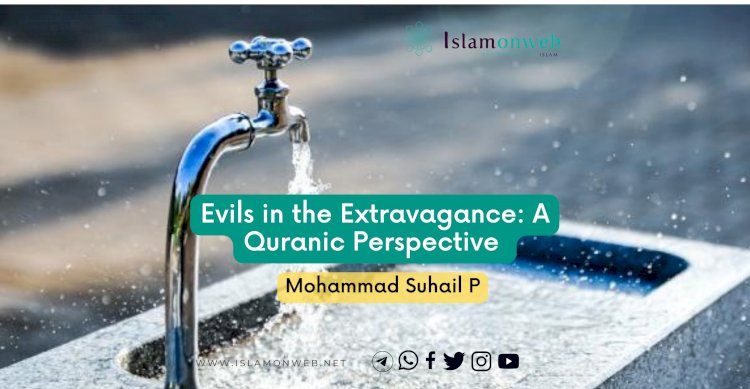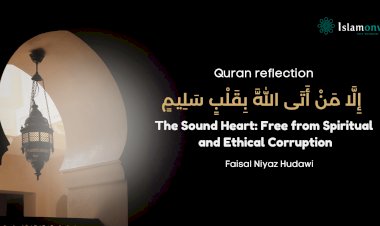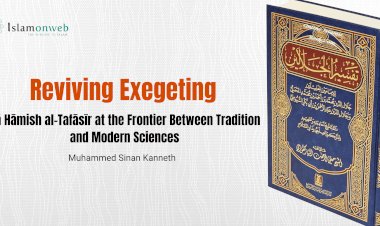Evils in the Extravagance: A Quranic Perspective
Such like hypocrisy, disbelief and ungratefulness, the expression of excessiveness (Isrāf) is also considered as the condemned behaviors in Islam. Rather than it is dangerous and harmful to individuals, it has far reaching implications on the stability and balance of a society. This article attempts to explore the evils of extravagance from a Quranic perspective.
That is why Allah constantly reminds us its consequences through the various verses in the Quran. Nevertheless, some of those verses are usually confined on its primary meanings and not surpassing to its various aspects and dimensions. So, here we try to elaborate the term of Isrāf in its wider aspects with special focus to the verse 3:147 in the Quran as it follows below:
(وما كان قولهم إلا أن قالوا ربّنا اغفر لنا ذنوبنا وإسرافنا في أمرنا وثبت أقدامنا وانصرنا على الكافرين)
All they said was, ‘our lord, forgive us our sins and our excesses. Make our foot firm, and help us against those who deny the truth” (3: 147).
This verse gives us a profound moral message from its theistic viewpoint that is, to be successful in life, one have firstly to ask Allah the forgiveness for his sins which enables him to become a spiritually enlightened being. Secondly, he has to ask Allah the forgiveness for the extravagance he has made in his life or the resources he has possessed. Thus it means that to limit the excess usage of resources and to lead a moderate life is another important factor in one’s success. Thirdly, after he was liberated from the extravagance, he has to ask Allah to make his foot firm in each and every step ahead which is crucial in stabilizing his life and to lead a successful life. Finally, he has to seek refuge of Allah from those who deny the truth. Overall, the verse conveys the message that in every battlefields whether it be physical, emotional and intellectual, one can win over his opposition if he practices the first three steps in the verse.
Meaning of Isrāf (excessiveness)
The lexical meaning of the word ‘Isrāf’ is to use beyond the purpose or to cross the line or to neglect. But technically it means to go beyond what’s necessary which will be ended up in catastrophic collapse towards the state of Imbalance.
For example, during Ifthar, we excess in consumption of food which will lead to the state of imbalance in our body’s function and push us into dangerous and unhealthy situation. So, the excess of the food consumption is one of the Isrāf or excessiveness which is very harmful to our body.
Isrāf: the different perspectives
Islam is one of the religions which keeps its ideas and concepts always in a moderate way which lies between excessiveness and disinclination. Prophet Muhammed (ﷺ) has warned people against the excessiveness and exaggeration.
Here, we discuss different aspects and types of Isrāf’s meanings. Excessiveness in faith is one type of Isrāf which can be seen in many fundamentalist and extremist movements through history. The modern version of ISIS is an example for this. Excessiveness of worship is another aspect of this type which occurs when a person over burdens himself in worship until he gets a pathetic which leads him to hate worship and quits it altogether as mentioned by Prophet (ﷺ): “Islam is easy, whoever overburdens himself in his religion will not be able to continue in that way”. For example, if someone studies the Quran all the time, he is neglecting his own responsibilities in many ways. In another word, he is studying the Quran while ignoring Quran by disobeying Quranic order to be responsible in his entitled duties.
Another type of Isrāf (excessiveness) is excessiveness on specific personality or a group. Racist and fascist movements are among this type of excessiveness. Excessiveness of love is another version of this type which occurs when you become too obsessed with someone. For example, if a father is too obsessed with affairs of his son, then he ignores all his responsibilities and his duties along with health maintenance.
Isrāf on materials is also problematic which make the order and harmony of universe imbalanced. That’s what Allah mentioned in the Quran:
"ألّا تطغوا في الميزان"
{You should not transgress the measure} (Al Rahman: 08)
Violation of earthly materials is a version of Isrāf. Allah says:
والذين إذا أنفقوا لم يسرفوا ولم يقتروا وكان بين ذلك قواما (الفرقان:67)
(They ore those who are neither extravagant nor niggardly, but keep a balance between the two)
So, to be balanced and moderate in economic transaction is significant principle of Islam. Isrāf on emotions is very harmful to our mental stability. It may be active or passive emotion. For example, to be angry always without any reason is an active emotional excessiveness while to be always silent and patient without any resilience during trouble is passive emotional excessiveness.
Addictive attitude towards video games and social media is making our society more in trouble and worse situation due to its negative consequences of Isrāf (excessiveness). Like that, joking around always has also negative impact as we’re going to offend others and don’t take nothing seriously.
In a nutshell, Isrāf (excessiveness) essentially means to go beyond what’s necessary in everything or go beyond the mere need, be it physical or emotional or spiritual or anything else. Those who practice Isrāf is condemned by Allah in the Quran and pharaoh was regarded as arrogant excessive to be great lesson for someone who thinks. Allah reminds:
ولا تطيعوا أمر المسرفين
‘Do not obey the bidding of those who are given to excesses’(42:151)
Isrāf brings negative consequences to life as we excess something we deprive something. Besides, during Isrāf only one thing will be over focused while neglecting the rest of things which results in harmful obsession. This will lead you to complete complex and anxious situation as nothing is good anymore. This is what Allah mentioned in the beginning of chapter Yunus,
ونحن لك زيّن للمسرفين ما كانوا يعملون (Yunus: 12)
“Thus do the deeds of the transgressors seem fair in their eyes”.
References
Kamali, Mohammad Hashim. The Middle Path of Moderation in Islam: The Qur'anic Principle of Wasatiyyah. Oxford, UK: Oxford University Press, 2015, 2015.
الرازي, فخر الدين. التفسير الكبير أو مفاتيح الغيب. بيروت لبنان: دار الفكر, 2005.
الشعراوي, محمد متولي. خواطر محمد متولي الشعراوي. مصر: دار الروضة للنشر والتوزيع, 2009.
الكتاني, عبد الحي بن عبد الكبير. تبليغ الأمانة في مضار الإسراف والتبرج والكهانة. بيروت لبنان: دار ابن حزم للطباعة والنشر والتوزيع،, 2008.
جبرين, عبد الله بن. الإسلام بين الغلو و الجفاء و الإفراط و التفريط. اسكندرية: دار الأمل , 2018.
About the author:
Mohammad Suhail P, S/o Abdul Razack is degree student at Darul Uloom Islamic Da’wa College, Thootha (affiliated to Darul Huda Islamic University, Chemmad). (suhailarimbra158@gmail.com
Disclaimer
The views expressed in this article are the author’s own and do not necessarily mirror Islamonweb’s editorial stance.

























Leave A Comment